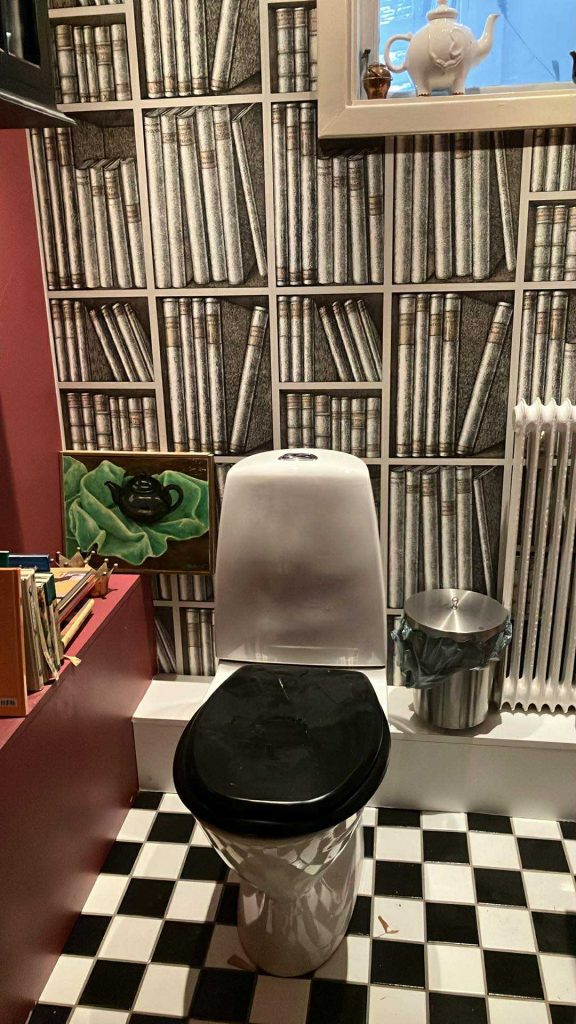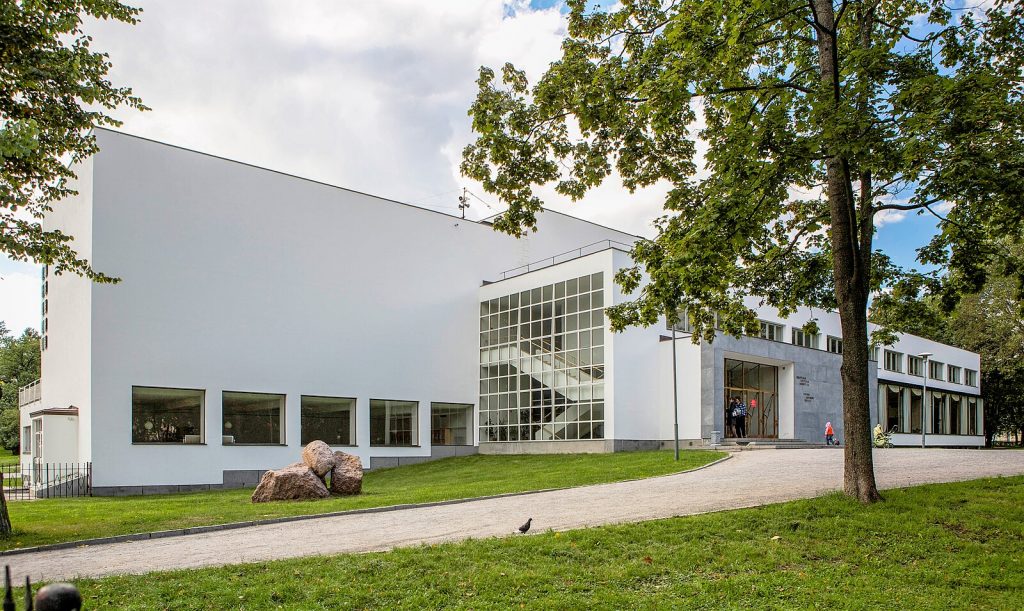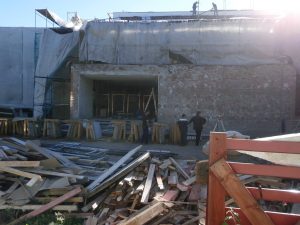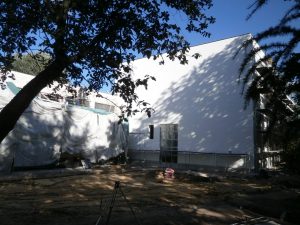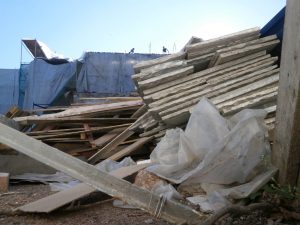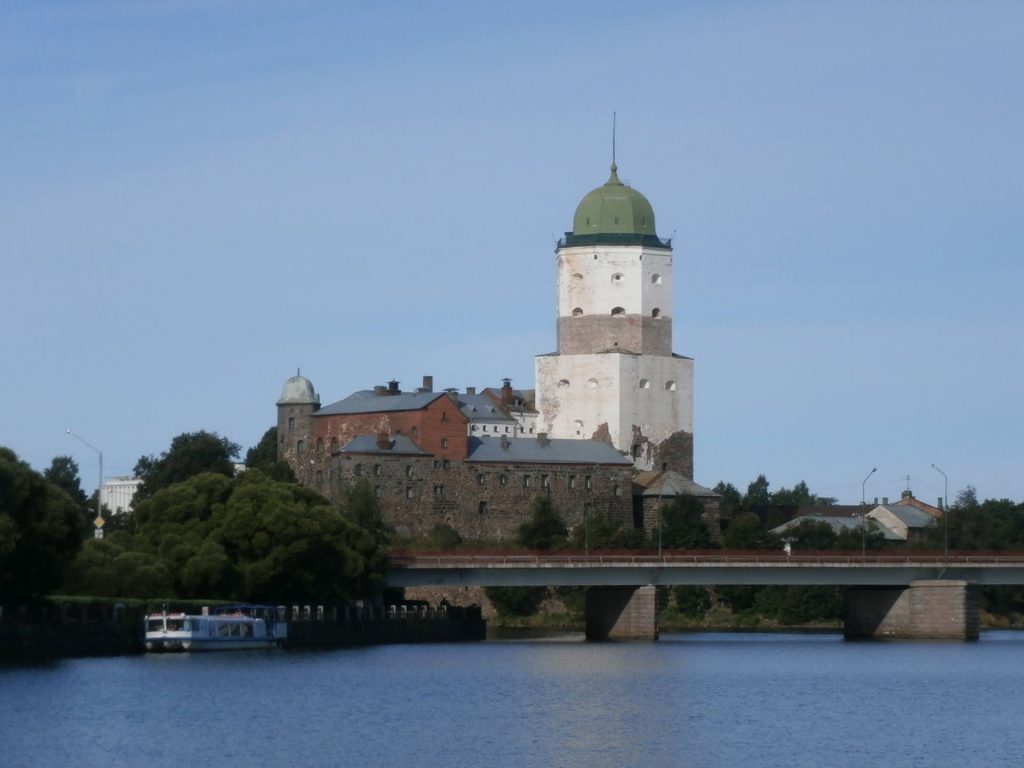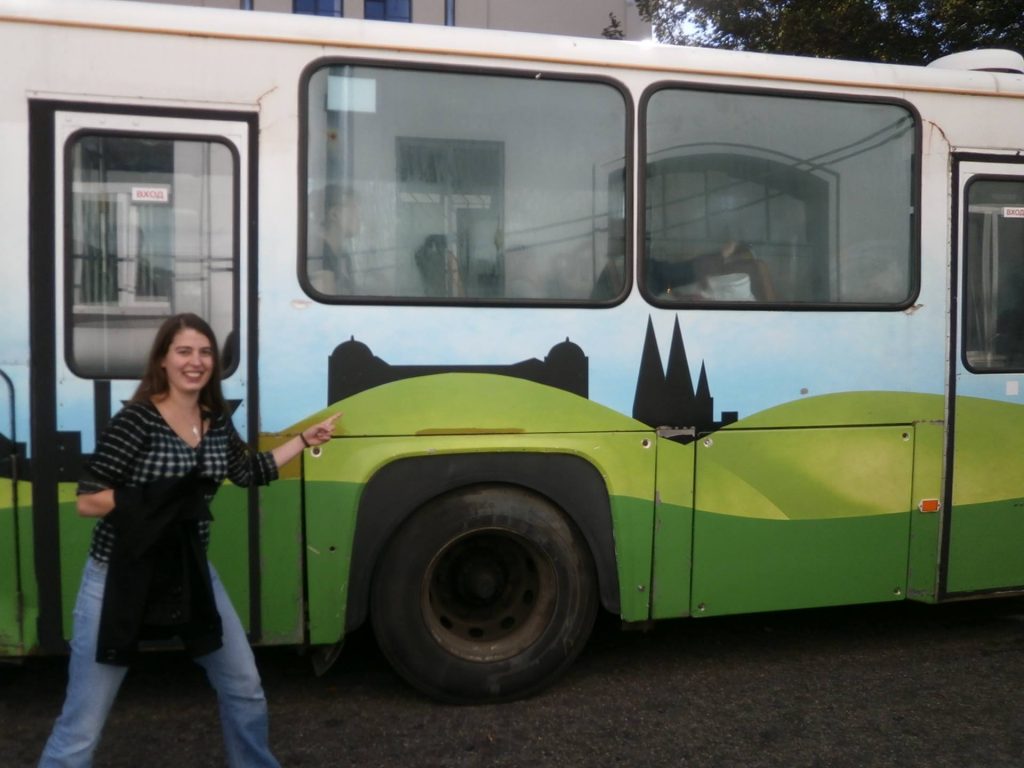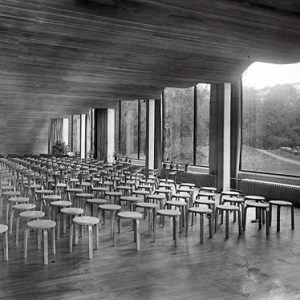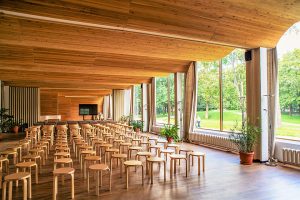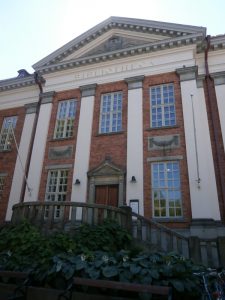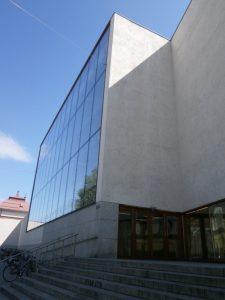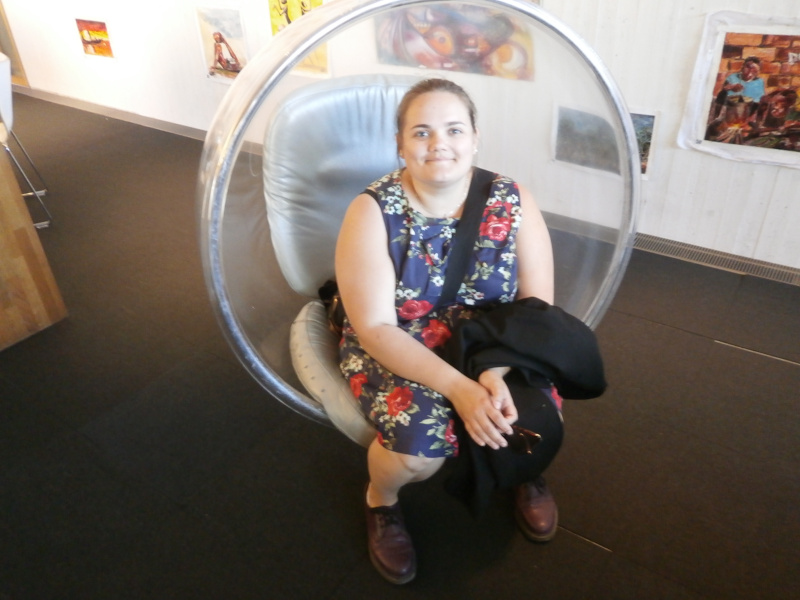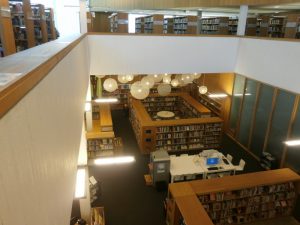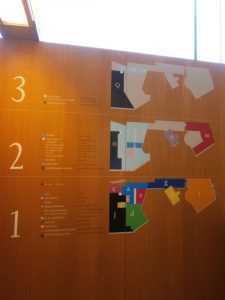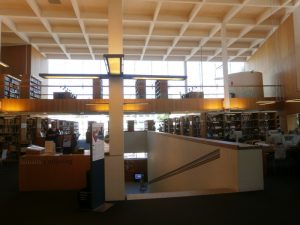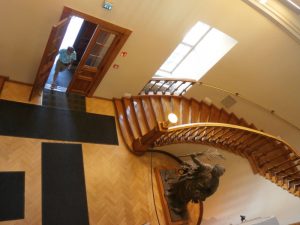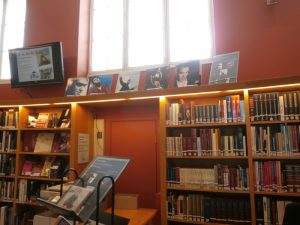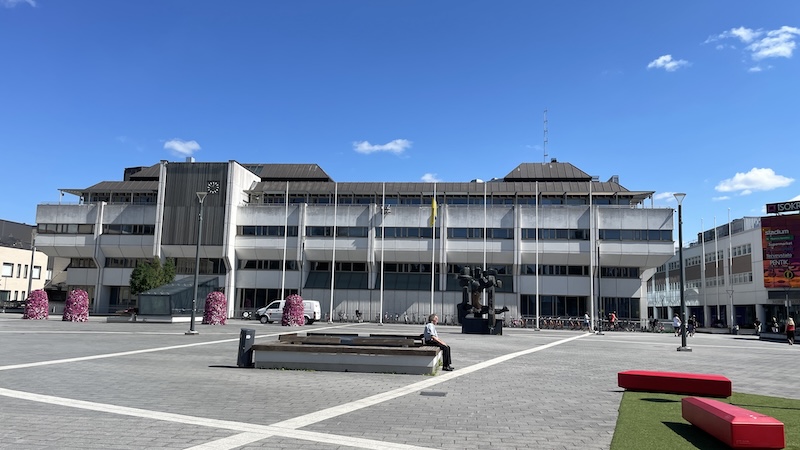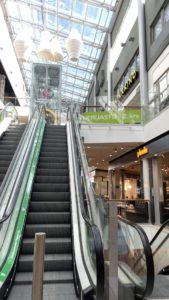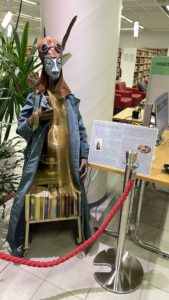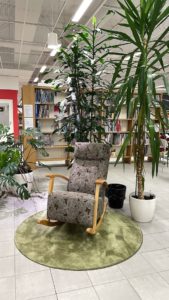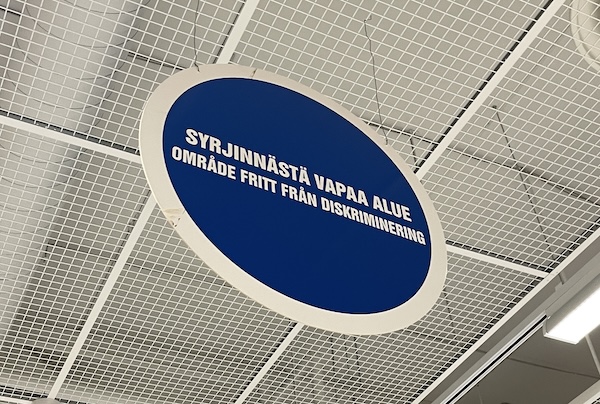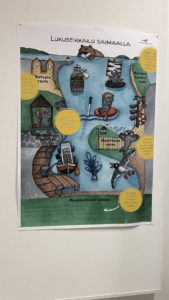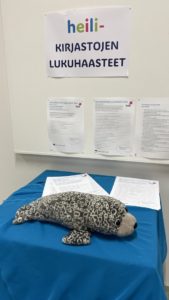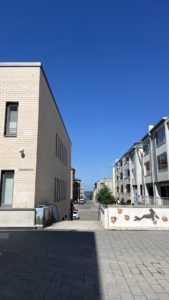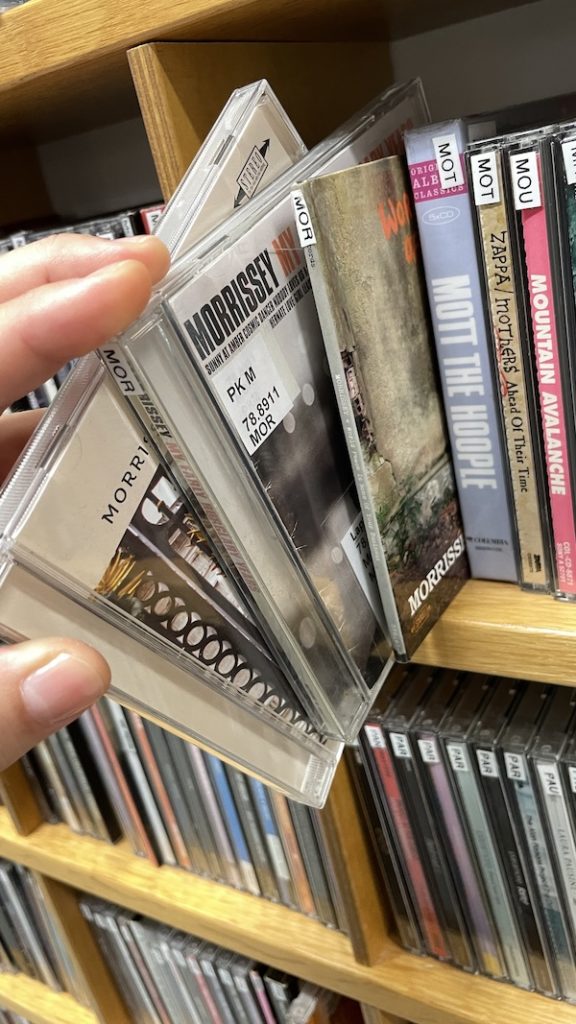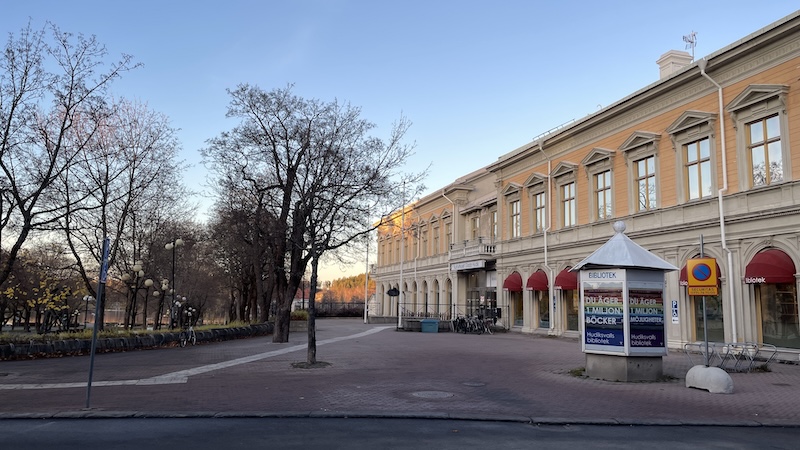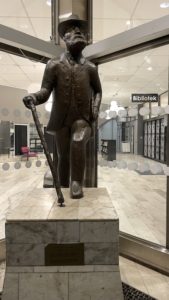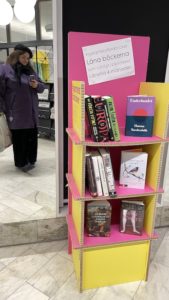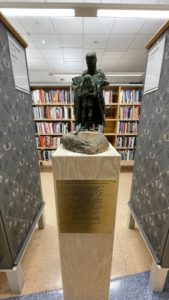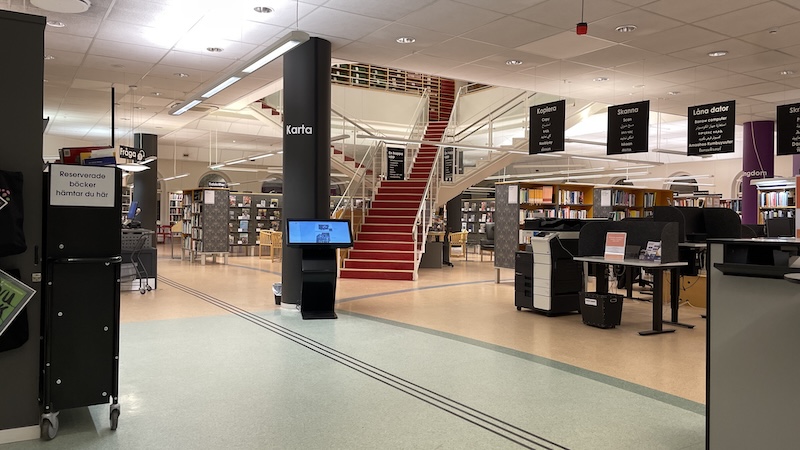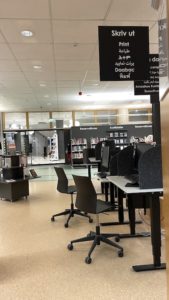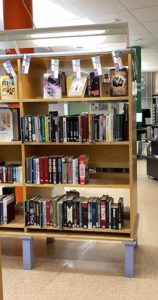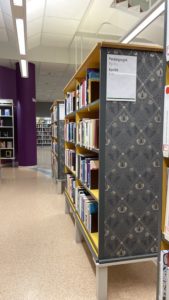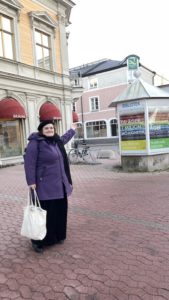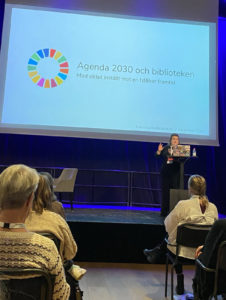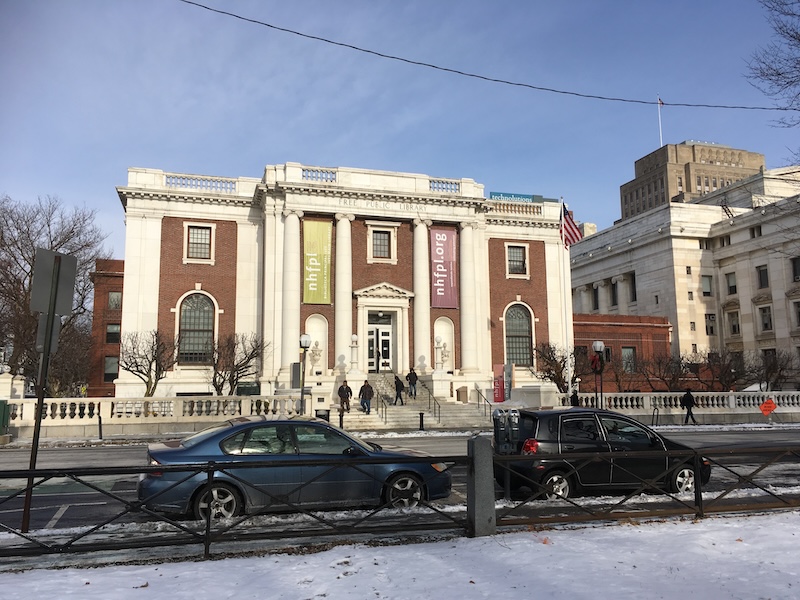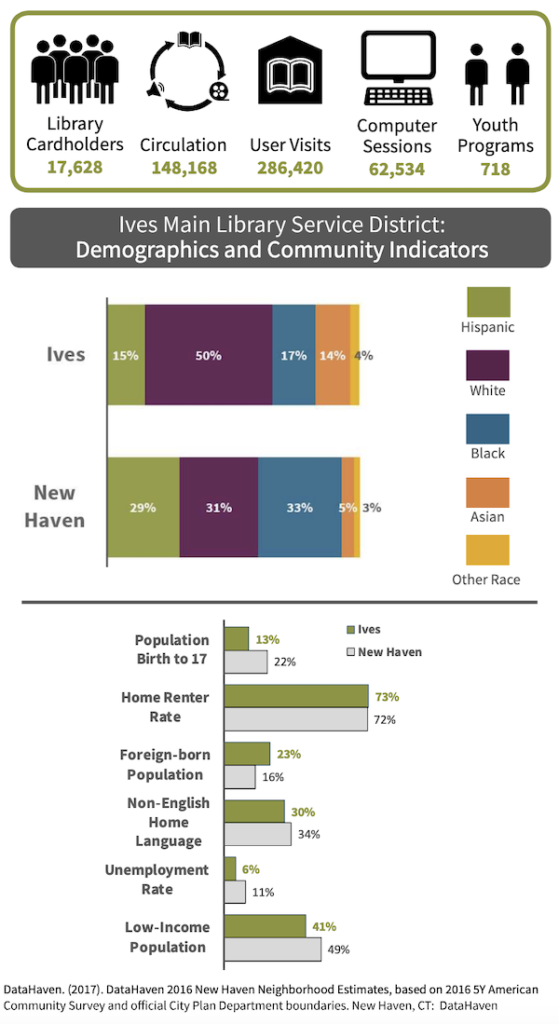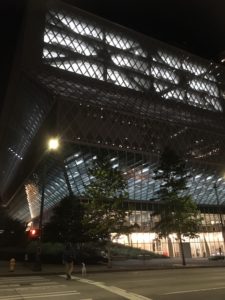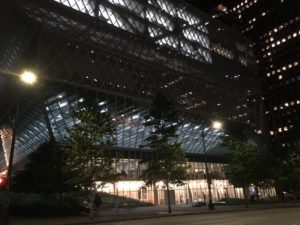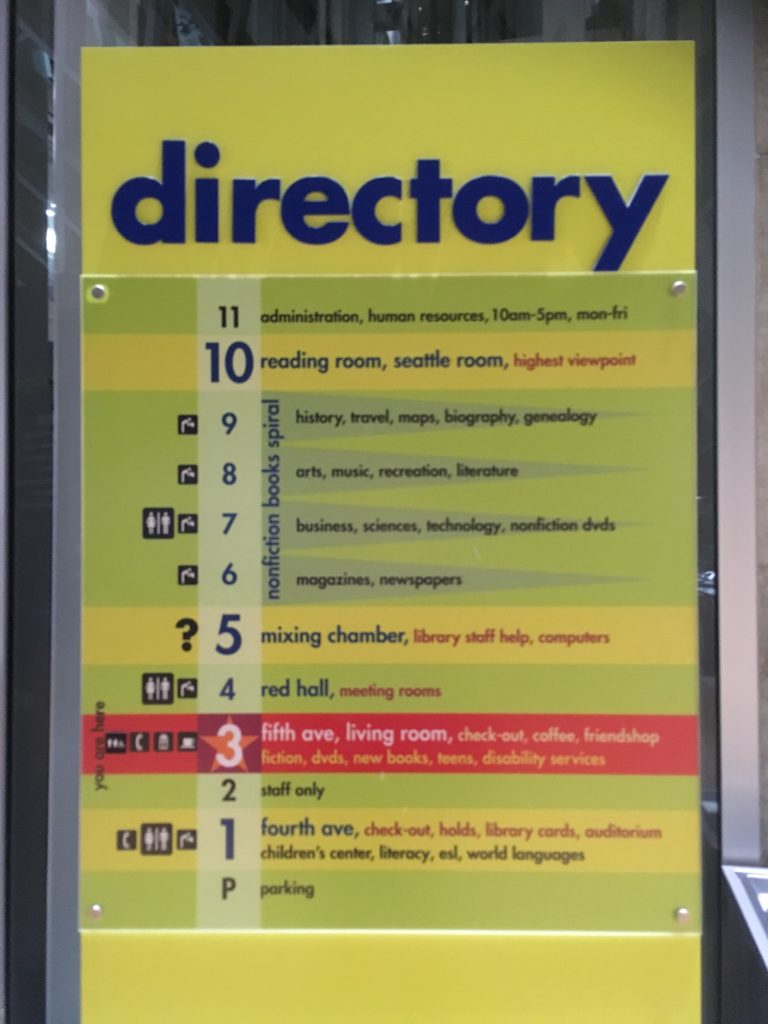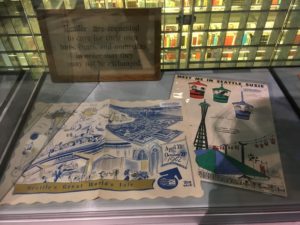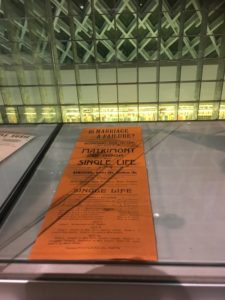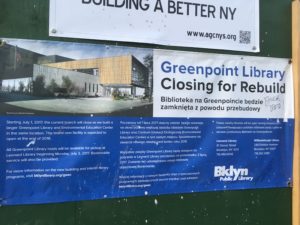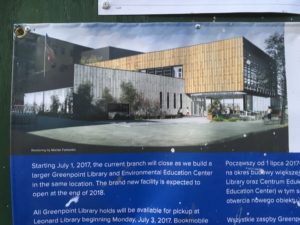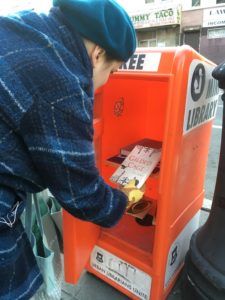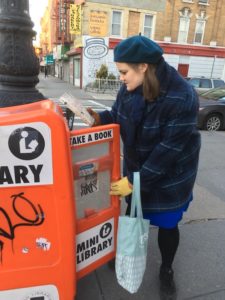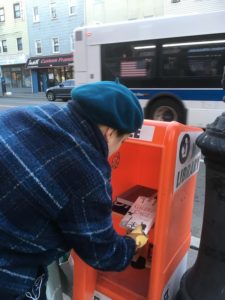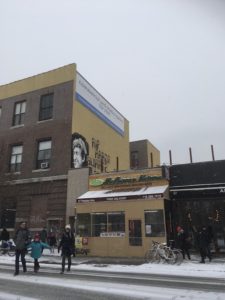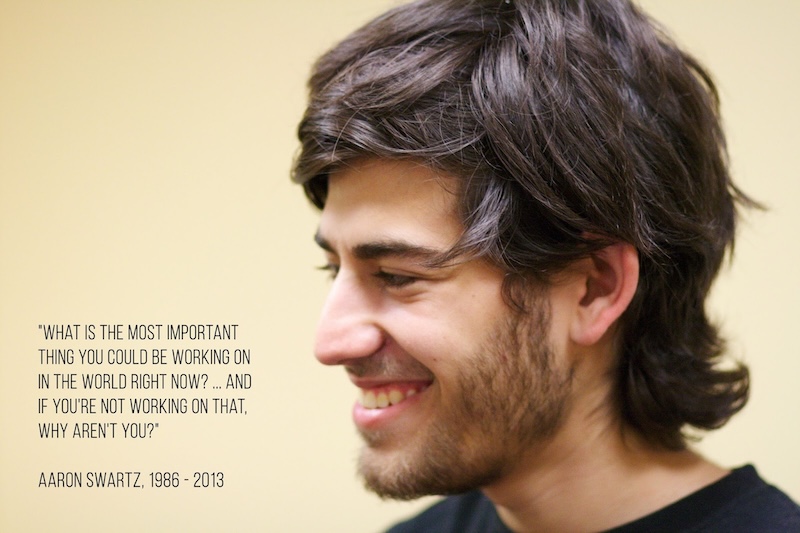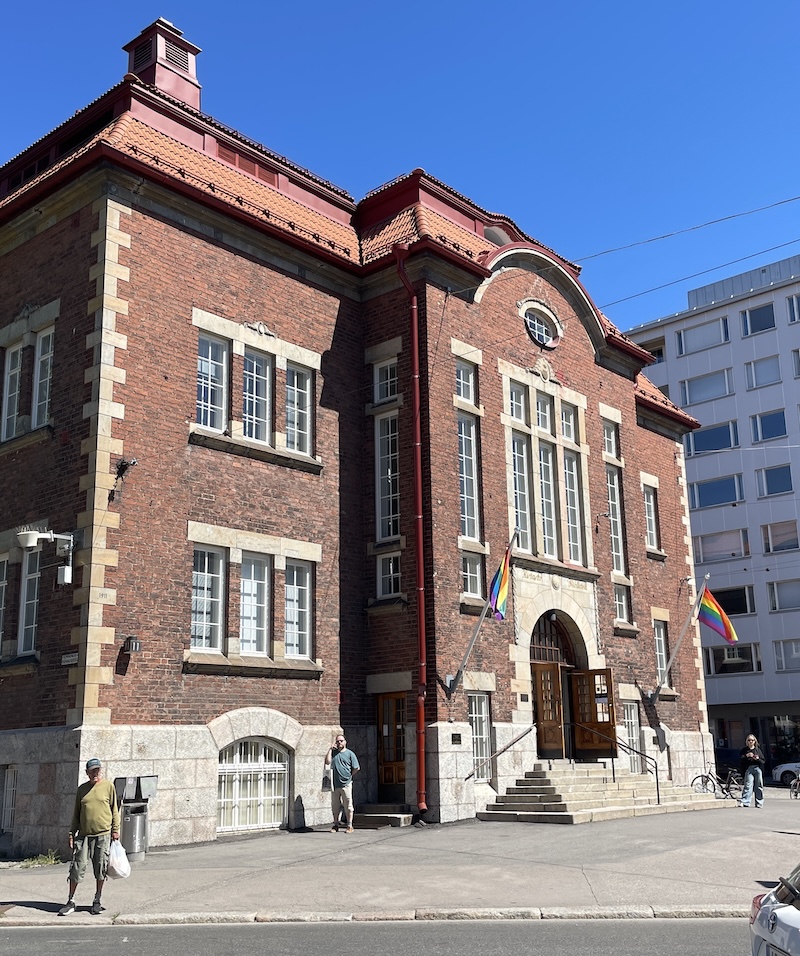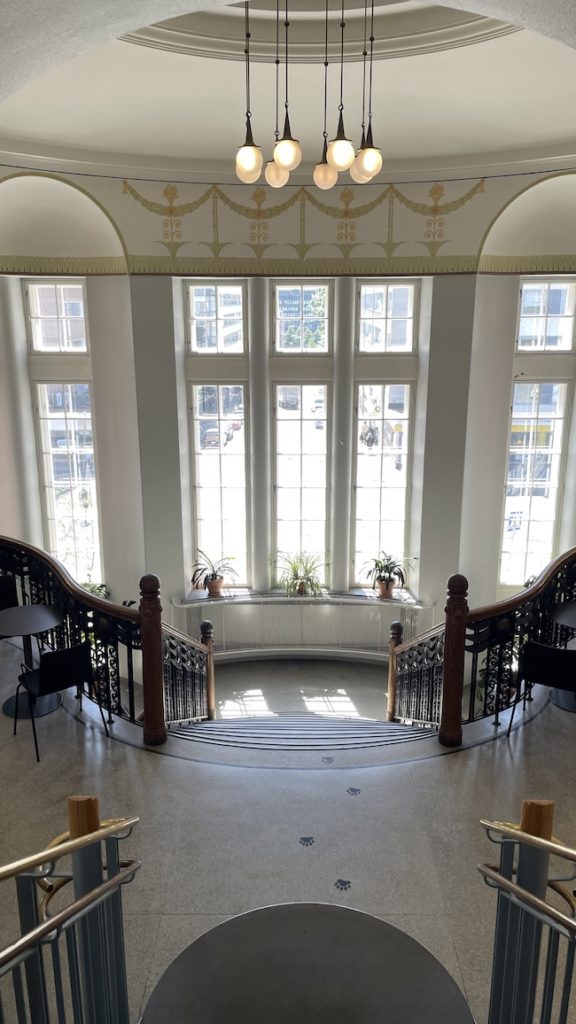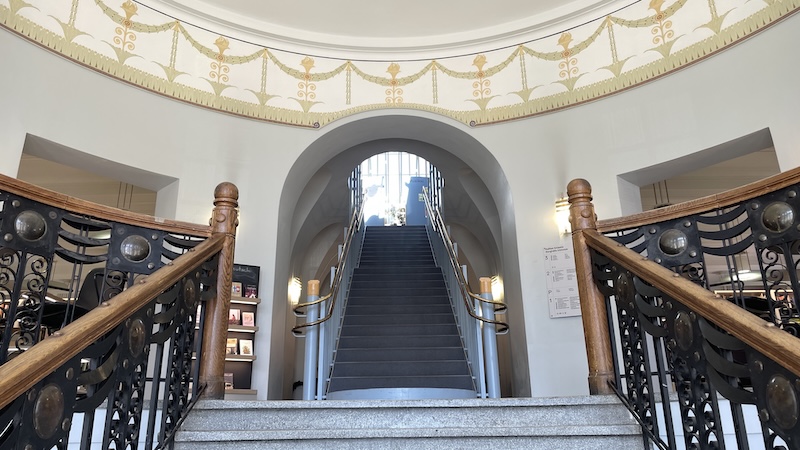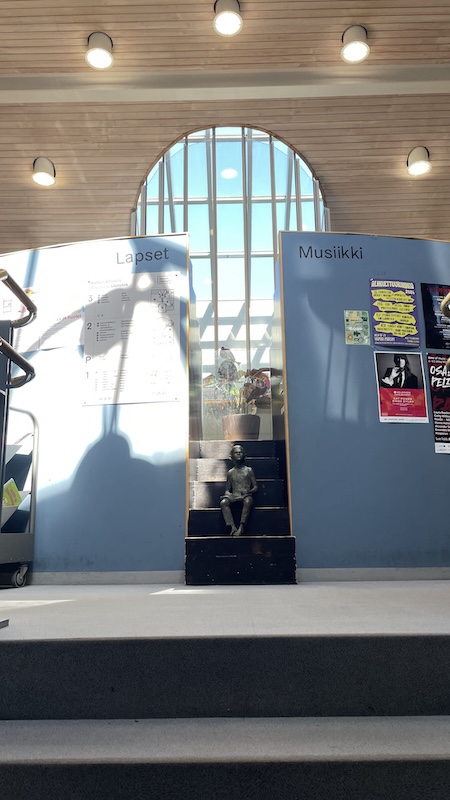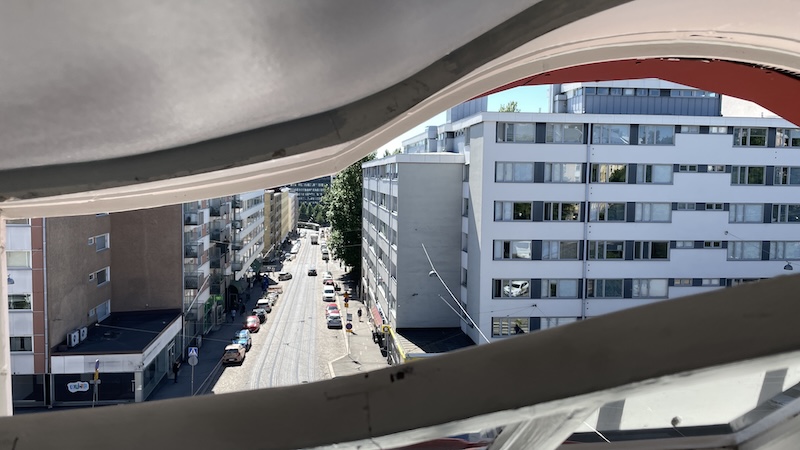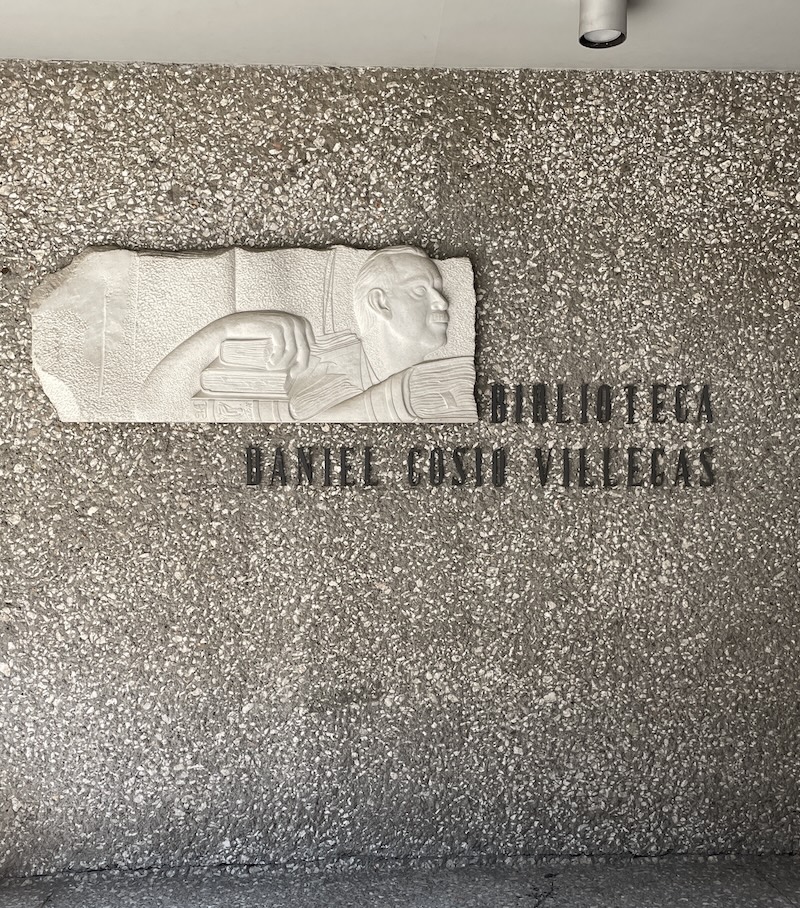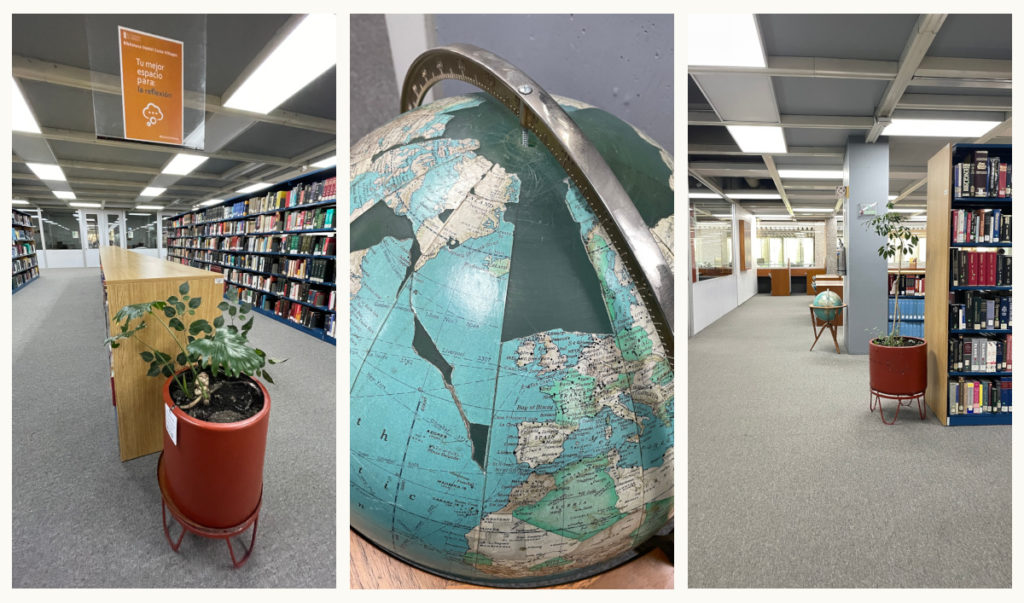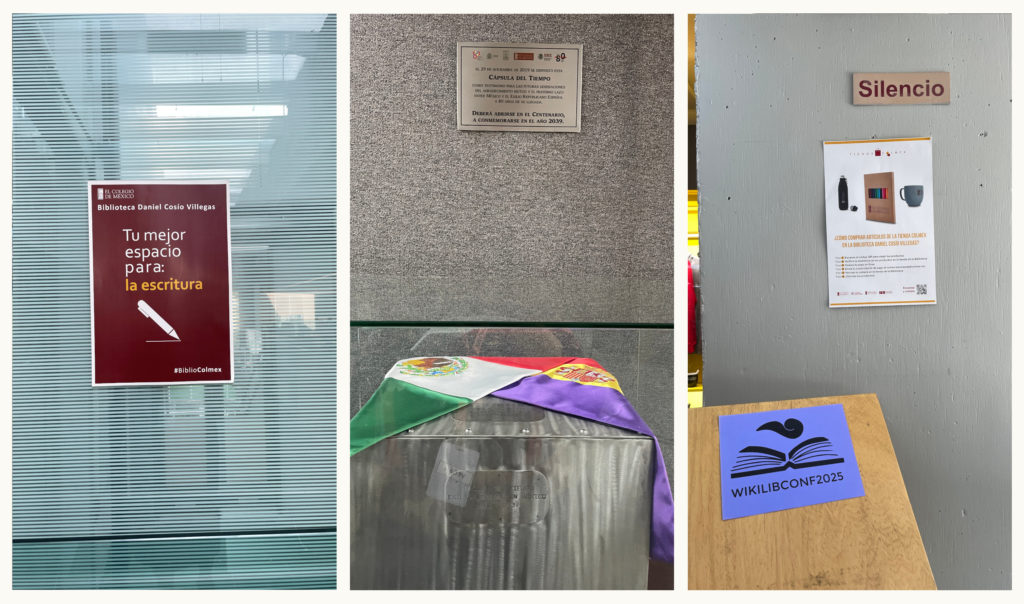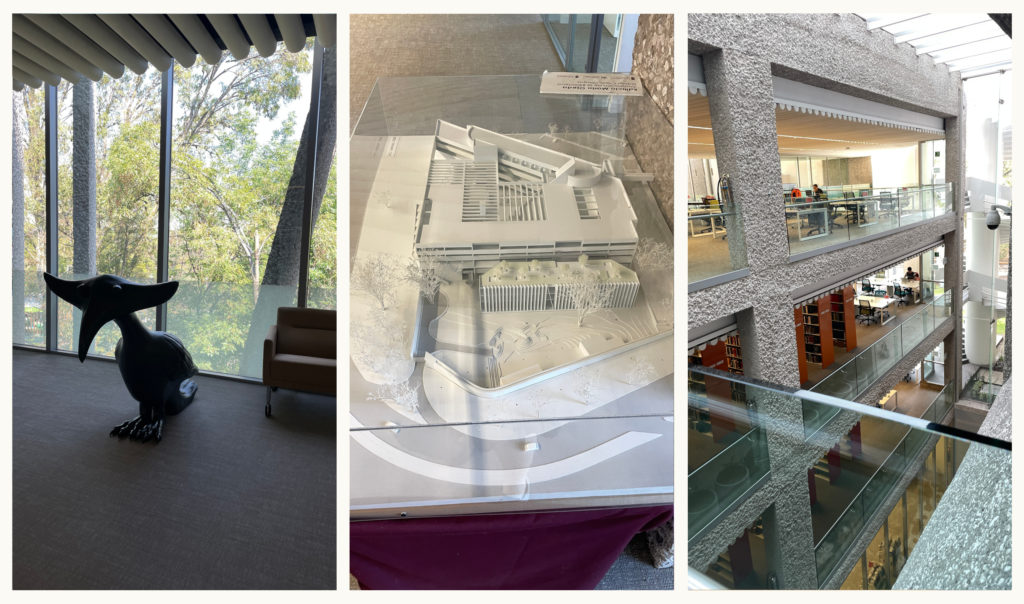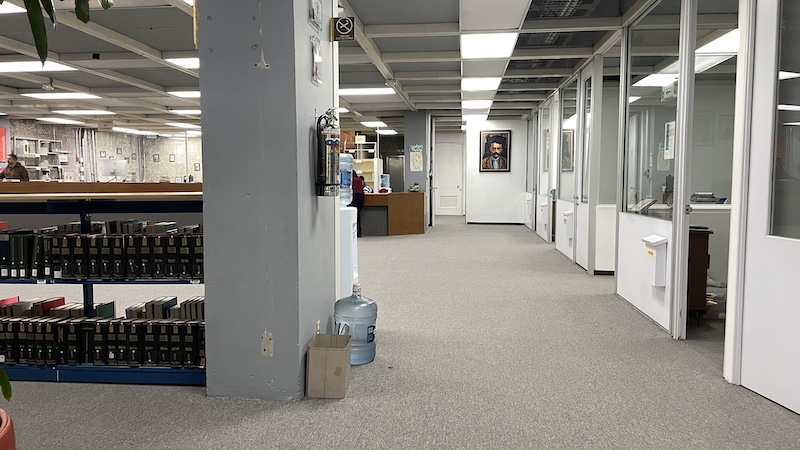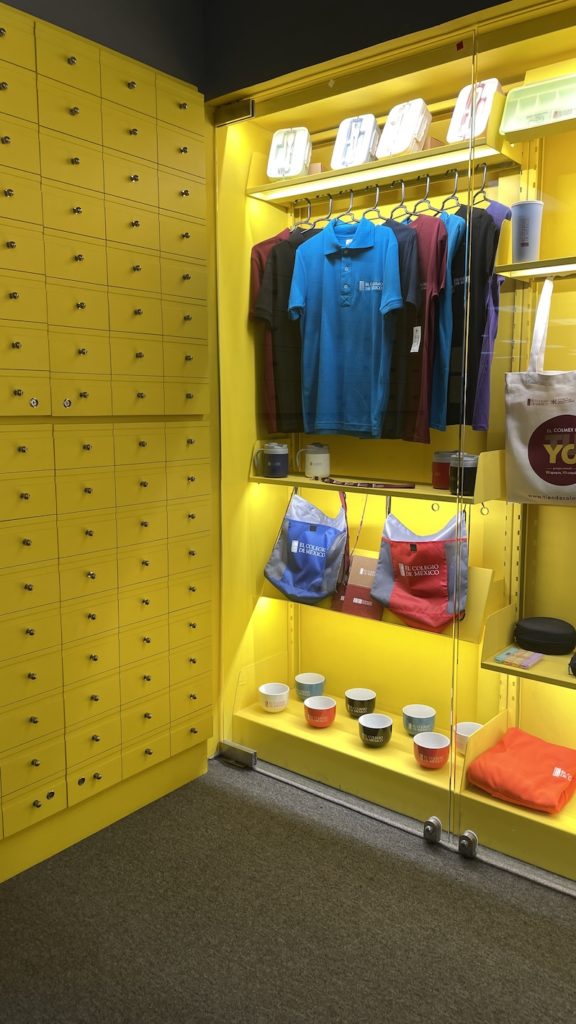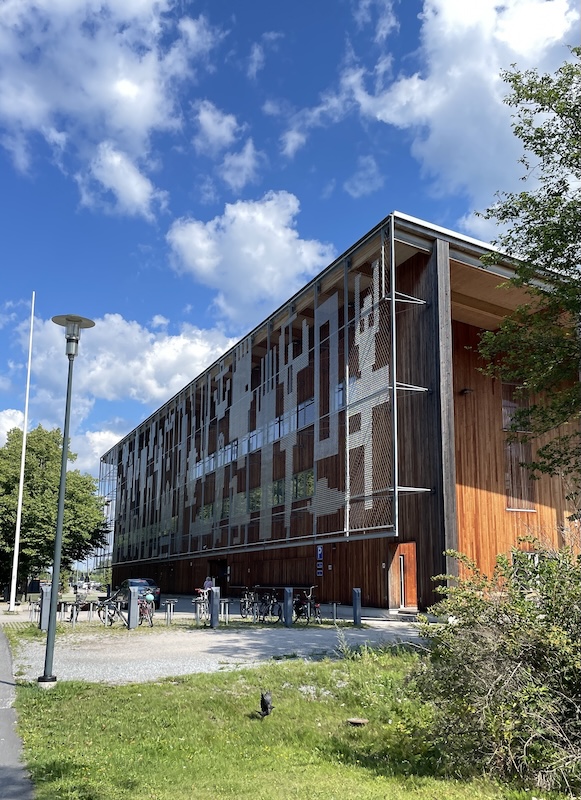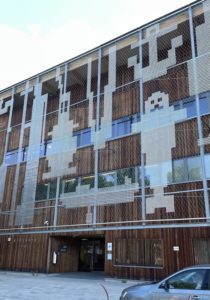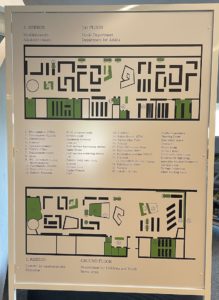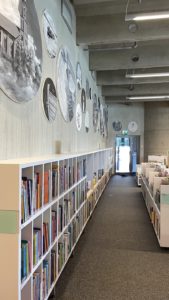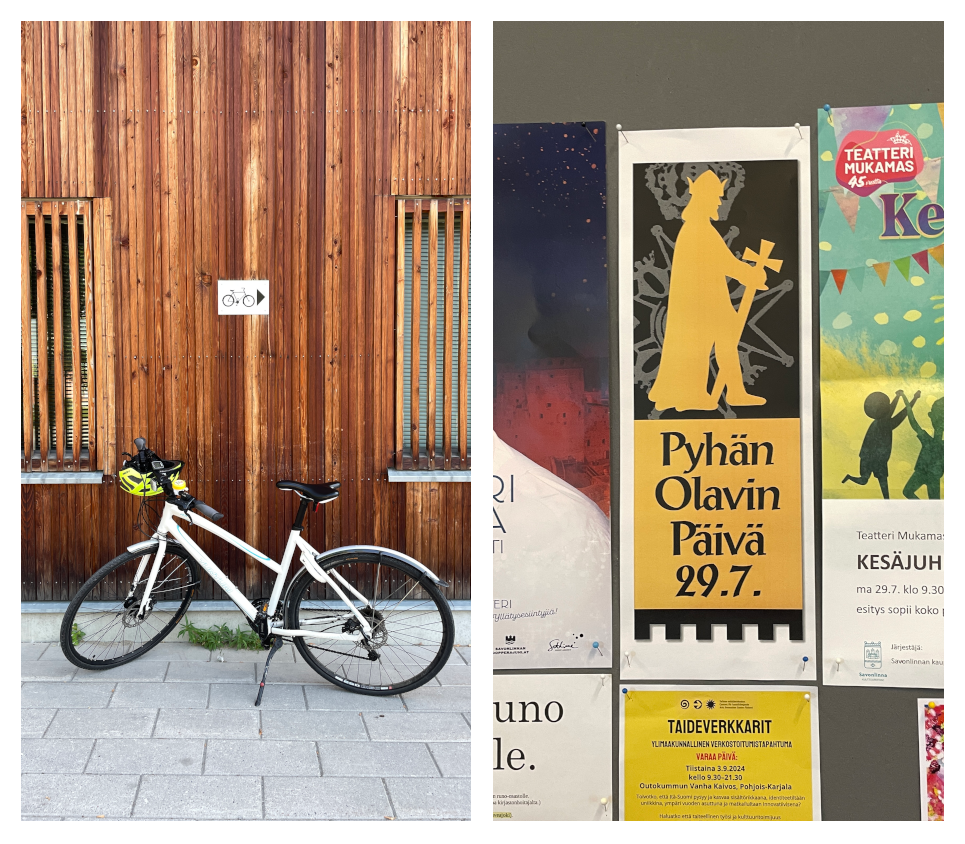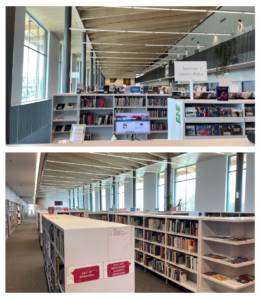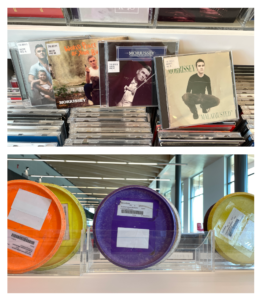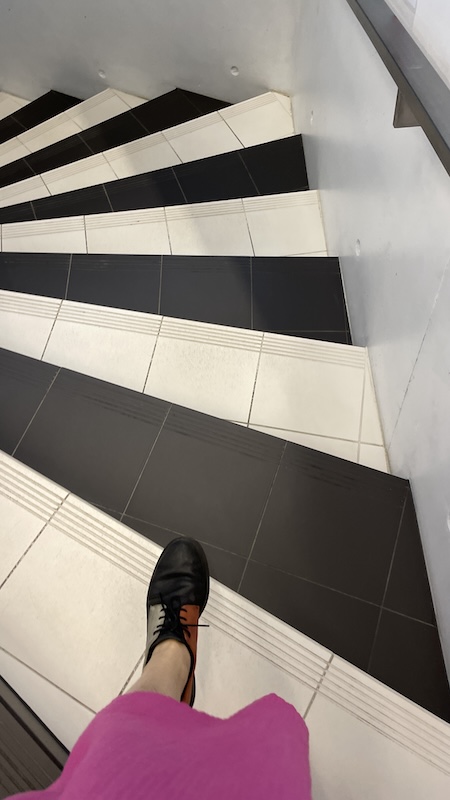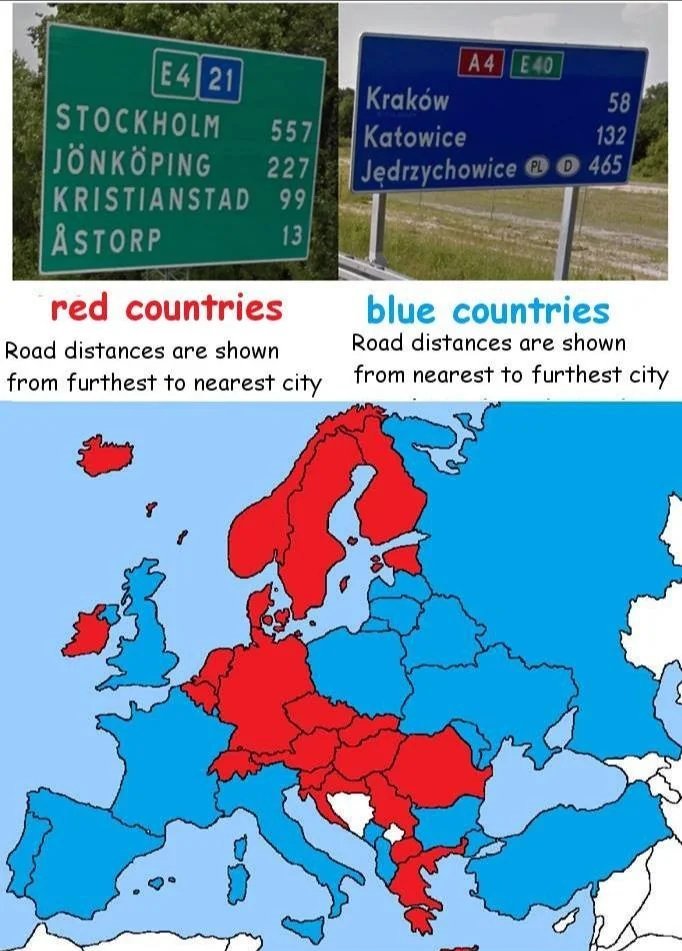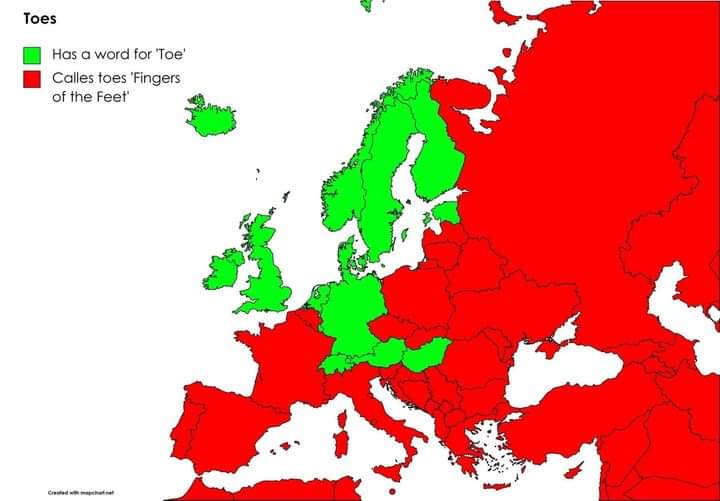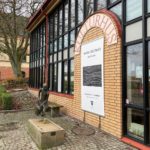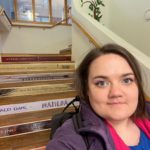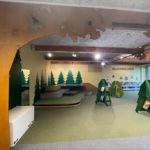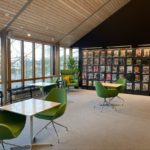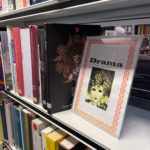Det händer så mycket i världen att det är svårt att ta in. En röd tråd i mitt avhandlingsprojekt är hur bibliotek – offentliga platser öppna för alla – blir slagfält i kulturkrig. Jag tycker i och för sig att kulturkrig är en svår term, men om jag istället säger så här: bibliotek används som arena för att propagera för ens egna åsikter.
Det här är ett tveeggat svärd. Å ena sidan ska all information finnas på bibliotek så att alla medborgare kan ta del av den information de vill utan inblandning från andra. Det är ett sätt att uppnå artikel 19 i de mänskliga rättigheterna (eller artikel 10 i Europakonventionen om man föredrar det). Å andra sidan behöver kanske inte alla slags informationskanaler användas för all information. Att information finns tillgänglig genom t.ex. ett bokinköp behöver inte betyda att den måste skyltas med eller att det måste anordnas ett boksamtal om just denna bok. Däremot kan det vara oerhört viktigt att ha kontroversiella böcker i samlingarna för att det erbjuder en kontext för den som söker information – om du söker vaccinskeptisk information på internet hamnar du förmodligen i en bubbla av information om just detta ämne, om du söker böcker om vaccinskepsis på biblioteket är det möjligt att du också stöter på information om fördelar med vaccin. Den breda men kurerade samlingen möjliggör ett möte med andra perspektiv av bara farten. Det är det som är skillnaden mellan ett kaninhål och ett bibliotek.
Det om boksamlingarna. Något som är svårare är evenemang och möten. Vem får mötas på biblioteket och på vilka villkor? Här i Finland har det sedan december varit mycket medieuppmärksamhet kring Blåsvarta rörelsens (det är verkligen besvärligt att denna artikel inte finns på andra nationalspråket svenska, måste kanske åtgärda detta) bokcirklar på bibliotek. Blåsvarta rörelsen (fi. Sinimusta liike) är en förening som av Finlands högsta förvaltningsdomstol nekats registrera som politiskt parti (Yle 23.4.2024) på grund av att ”partiets målsättningar inte förenliga med mänskliga och grundläggande rättigheter och demokratiska principer.”
De har på senaste tiden anordnat en hel del bokcirklar och, så vitt jag förstår, offentligt annonserat om dem på sin webbsida. Nu i februari ville de ordna en läsecirkel om Runebergs verk Fänrik Ståls sägner (fast på finska) på Borgås bibliotek, men de fick nej av biblioteket (Yle 8.1.2024). Föreningen hade bokat en möteslokal på biblioteket, men bokningen hade inhiberats (avbokats, som jag skulle säga på sverigesvenska hehe) på grund av att Borgå stad hade uppdaterat sina villkor för att boka lokaler:
”endast den enhet inom livskraftssektorn som förvaltar lokalerna kan vara ansvarig arrangör vid offentliga tillställningar där det krävs en anmälan till polisen och/eller en säkerhets- och räddningsplan.” – Borgå stads reserverings- och användningsvillkor, 23.12.2024 (pdf)
Stycket ovan citerades i den nämnda Yle-artikeln men jag läser också med intresse i samma dokument att ”En tillställning i stadens lokaler får i princip inte störa verksamhetsställets övriga
verksamhet, kunder eller användare. Med lokalens innehavare och vid behov med
myndigheterna överenskoms från fall till fall om sådana offentliga tillställningar som
orsakar eventuellt buller eller störningar.” samt ”Innehåll eller typ av tillställningen eller evenemanget som ordnas i stadens lokaler kan inte strida mot Finlands lagar eller Borgå stads strategi eller välfärdsplan eller stå i strid med god sed. Lokaler hyrs inte ut till verksamhet som diskriminerar människogrupper eller till en aktör vars övriga verksamhet tydligt diskriminerar en människogrupp eller människogrupper.” Kort sagt, nej till rasism.
Angående detta med störningar. Trots inhiberingen så fortsatte dock BS-rörelsen annonsera evenemanget på sin webbsida och i sociala medier (Yle 30.1.2025) och biträdande stadsdirektören sade att de var förberedda på en eventuell tillställning i biblioteket och att ”Vi har sådana personalarrangemang i vårt bibliotek på lördagen att kunder i vanlig ordning, tryggt kan använda sig av bibliotekets tjänster.”
Just störningar var ett problem som uppstod på Odebiblioteket i Helsingfors den 6 december (nationaldagen men tyvärr också ett populärt tillfälle för nationalsocialistiska yttringar och demonstrationer, precis som i Sverige), när BS-rörelsen ordnade en liknande läsecirkel (Yle, 6.12.2024). Då ordnades en samtidig bokcirkel av Södra Finlands Vänsterunga som en reaktion på evenemanget, och därtill samlades många motdemonstranter. Polis var på plats. I det fallet hade BS-rörelsen inte bokat någon lokal, vilket också medför att biblioteket inte kan avboka en lokal – alla är välkomna till biblioteket, så länge man inte stör.
Ode skriver på sin webbplats att biblioteket inte på förhand kan begränsa någons tillträde till en offentlig plats, men att man ingriper mot eventuellt störande beteende. Rasistisk verksamhet är förbjuden i biblioteket, skriver Ode. ”Vi behöver hitta gränser så att alla har det bra att vara och att alla kan diskutera, utan att man främjar till exempel en rasistisk rörelse.” – Svenska Yle, 6.12.2024
Samma sak hände igen på trettondagen (Yle, 6.1.2025) och Helsingfors stads sektorchef för kultur- och fritid konstaterade att ”De bokar inte lokaler och det syns inte som ett evenemang hos oss. Sedan tågar de in, och på sociala medier får vi veta att här är en sådan här läsecirkel.”
Denna fråga har diskuterats även i Åbo (Yle 13.1.2025) och där konstateras bland annat att biblioteket anordnat läsecirklar i över 50 år, att läsecirklarna ”är öppna för alla – men alla besökare måste kunna känna sig trygga” samt att man följer ”strikta etiska riktlinjer som förbjuder rasistiska organisationers evenemang, inklusive högerextrema läsecirklar”.
Jag tänker att det finns tre saker (en så kallad Stubb-lista) som är centrala i detta:
- Läsecirkelns form
- Vems offentlighet?
- En lokal för alla bör vara trygg för alla
Läsecirkelns form
Jag är med i två läsecirklar. Båda kommunicerar via privata grupper i meddelandetjänster. En av dem bildades inom en större chattkanal och intresserade kunde samlas i en mindre chattkanal för att bestämma läsordning, datum och tid för träffar och mötesplats. Vi läser Jane Austens verk och har hittills samlats på just Åbo stadsbibliotek för att diskutera boken vi läst.
Det som skiljer denna läsecirkel från BS-rörelsens läsecirkel är alltså att det inte är ett offentligt arrangemang utan ett informellt möte för att diskutera böcker. För den som kanske saknar ett sammanhang där läsecirklar kan formas finns det alternativ, till exempel bibliotekets egna läsecirklar (som är offentliga evenemang).
BS-rörelsen har dock ett sammanhang. Det är en förening med medlemmar och förmodligen interna kommunikationskanaler där de kan nå presumtiva läsecirkeldeltagare. De skulle i princip också kunna starta en chattgrupp och mötas utan buller och bång på bibliotekskaféet, precis som vi Austenläsare.
Jag kan därför konstatera att det inte finns något hinder för BS-rörelsen att prata om Runeberg på bibban (bibblan, på sverigesvenska), utan problemet ligger i tillvägagångssättet.
Vems offentlighet?
Tillvägagångssättet kan delas upp i två faux pas: dels lokalbokning med syfte att anordna ett offentligt evenemang, dels marknadsföringen av evenemanget i offentliga kanaler (webbsida och sociala medier). Just detta med lokalbokningar har dykt upp i mina forskningsintervjuer. En informant sade att biblioteket lät alla (privatpersoner och föreningar) boka mötesrum men att det var viktigt att det inte skyltades eller pyntades i mötesrummet på ett sätt som påverkar andra biblioteksbesökare. Biblioteket ska vara en neutral plats även om din förening lånar/hyr en lokal för årsmöte.
Denna rumslighet borde för övrigt även gälla i resten av biblioteket. Jag noterade på en bild från Odebiblioteket i Helsingfors (Yle 7.1.2025) att en deltagare från BS-rörelsen sitter i partihalsduk. Just detta med uniform klädsel och vad den förmedlar påverkar andra runtomkring en. Kläder förmedlar något och det är nog väldigt svårt att begränsa hur folk klär sig, men man kan väl säga att vissa klädesplagg har starkare budskap än andra – det finns liksom en skala mellan ”jag lyssnar för mycket på The Cure”, ”jag hör till en viss religion” och ”jag anser inte att du har något existensberättigande”. På samma sätt finns det en skala mellan att klä sig lämpligt och respektfullt och direkt olagligt. Jag anser nog ändå inte att det är jättekontroversiellt att konstatera att utseende är något folk tänker på innan de kliver utanför dörren på morgonen.
Vad gäller marknadsföringen i föreningens kommunikationskanaler så är det något som bibliotek inte har möjlighet att påverka eller begränsa. Här tänker jag att man måste göra skillnad på offentliga och icke-offentliga evenemang och att om man väljer att anordna ett offentligt (men kanske icke-officiellt) evenemang på ett bibliotek så är det kanske inte i första hand en läsecirkel man vill ordna. Det kan liksom inte vara svårt för BS-rörelsen att se att evenemanget är opassande av alla ovan nämnda skäl utan det måste handla om att man vill ha uppmärksamhet, skapa kaos och sen urskuldande vifta med yttrandefrihets- och censur-kortet som något slags bisarrt carte blanche för att bete sig hatfullt och hotfullt mot andra människor. Men nu är det så att i våra gemensamma offentliga rum råder gemensamt överenskomna trivselregler. Att du är rasist innebär inte att du inte måste visa hänsyn mot andra människor.
En lokal för alla bör vara trygg för alla
För det tredje, tre: man kan sammanfatta det så att om din yttrandefrihet kräver att andra människor yttrandefrihet och rätt att få tillgång till information på biblioteket inskränks så kan det finnas skäl att begränsa din yttrandefrihet. Samhället har begränsningar i yttrandefriheten för att den inte ska användas ”för att kränka andras grundläggande rättigheter eller människovärde” (se information om Hatbrott, Polisen). Att du har mänskliga rättigheter innebär också att du har mänskliga skyldigheter gentemot andra.
I fallet Borgå, och förresten vad det verkar andra platser, så har man regler som begränsar uthyrning av lokaler med hänvisning att följa lagen genom att inte tillåta diskriminering eller rasism. Det kan tyckas paradoxalt att förbjuda vissa organisationer om nu biblioteket är för alla, men som bibliotekschefen i Kimito säger i denna artikel (Yle 13.1.2025):
”Biblioteken ska vara öppna för alla. Samtidigt måste vi följa lagen och inte tillåta diskriminering eller rasism. Biblioteken måste vara trygga platser för alla besökare.” – Svenska Yle 13.1.2025
Att eftersträva trygghet i offentliga rum – i synnerhet bibliotek som är sådana livlinor i alla möjliga livssituationer – är otroligt viktigt för att möjliggöra allas tillgång till information och åsiktsbildning på lika villkor. Det är rimligt att begränsa det offentliga utrymmet om det innebär att det ger plats för fler.
Och läsecirkeln om Runeberg kan man ju fortfarande ha, också på biblioteken. Stäm träff i gruppchatten.
I denna artikel länkar jag till Yle-artiklar eftersom de är öppet tillgängliga, men ämnet har berörts också i Åbo underrättelser och Husis.
